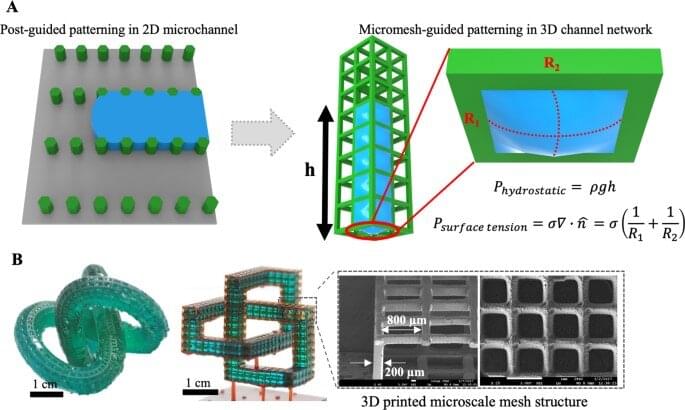Quaise is trying to tap the energy of Earth’s core by drilling deeper than anyone one else—with a beam of microwaves that can vaporize rock.


A vocal critic of the Russian leadership is Garry Kasparov, the chess grandmaster who repeatedly ranked world number one for 20 years before turning his attention to politics. He tells leaders to “help Ukraine fight against the monster you helped create.” Kasparov speaks with Walter Isaacson.
Originally aired on February 24, 2022
For more from Amanpour and Company, including full episodes, click here: https://to.pbs.org/2NBFpjf.
Like Amanpour and Company on Facebook: https://bit.ly/2HNx3EF

Airships might seem like a technology from a bygone era, but a startup says their new design could become a crucial cog in the green hydrogen supply chain.
While transitioning away from fossil fuels will prove crucial in our efforts to combat climate change, it’s easier said than done for some industries. While road and rail transport are rapidly electrifying, in aviation, batteries are a long way from being able to provide the weight-to-power ratio required for aviation. And even the largest batteries are still not big enough to power a container ship on long-distance crossings.
Hydrogen is increasingly being seen as a promising alternative for these hard to decarbonize sectors. It has a higher energy density than natural gas and can either be burned in internal combustion engines or combined with oxygen in a fuel cell to create electricity.


Bioprinting is widely applicable to develop tissue engineering scaffolds and form tissue models in the lab. Materials scientists use this method to construct complex 3D structures based on different polymers and hydrogels; however, relatively low resolution and long fabrication times can result in limited procedures for cell-based applications.
In a new report now available in Nature Asia Materials, Byungjun Lee and a team of scientists in mechanical engineering at Seoul National University, Seoul, Korea, presented a 3D hybrid-micromesh assisted bioprinting method (Hy-MAP) to combine digital light projection, 3D printed micromesh scaffold sutures, together with sequential hydrogel patterning. The new method of bioprinting offered rapid cell co-culture via several methods including injection, dipping and draining. The work can promote the construction of mesoscale complex 3D hydrogel structures across 2D microfluidic channels to 3D channel networks.
Lee et al. established the design rules for Hy-MAP printing via analytical and experimental investigations. The new method can provide an alternative technique to develop mesoscale implantable tissue engineering constructs for organ-on-a-chip applications.


Decades of research has shown that limits on calorie intake by flies, worms, and mice can enhance lifespan in laboratory conditions. But whether such calorie restriction can do the same for humans has remained unclear. Now a new study led by researchers at Yale University, Connecticut, confirms the health benefits of moderate calorie restrictions in humans – and identifies a key protein that could be harnessed to extend health in humans.
The researchers used data from the Comprehensive Assessment of Long-term Effects of Reducing Intake of Energy (CALERIE) clinical trial, the first controlled study of calorie restriction in healthy humans. For the trial, they established a baseline calorie intake among more than 200 study participants. They then asked a share of those participants to reduce their calorie intake by 14% while the rest continued to eat as usual, and analysed the long-term health effects of calorie restriction over the next two years.
Vishwa Dixit, Professor of Pathology, Immunobiology, and Comparative Medicine, and senior author of the study, said that his team wanted to better understand what calorie restriction does to the body specifically that leads to improved health. Building on previous studies in mice, he and his colleagues set out to determine how it might be linked to inflammation and the immune response.

